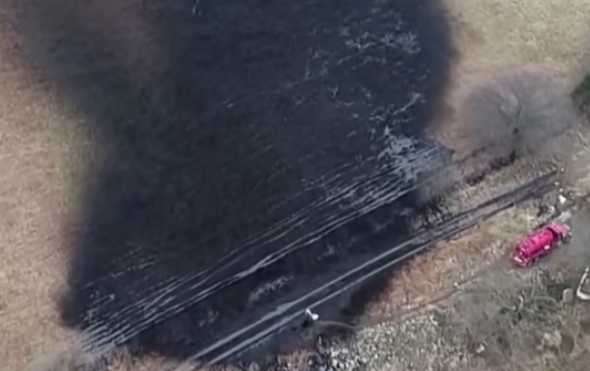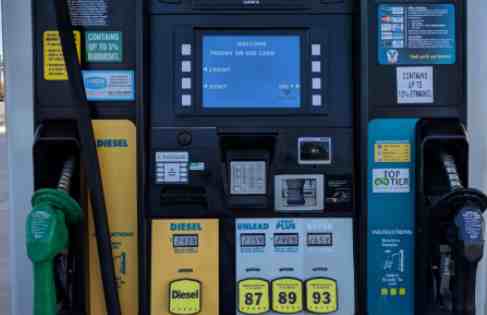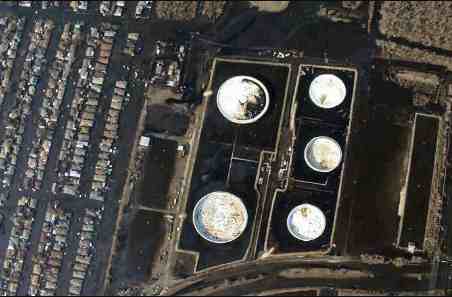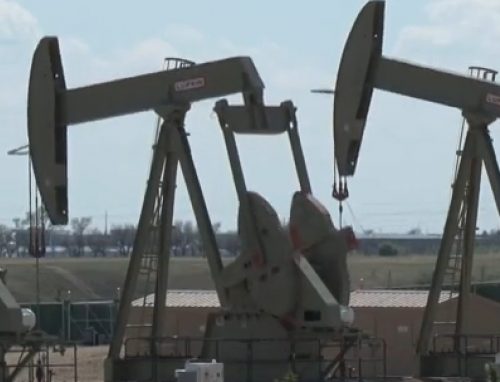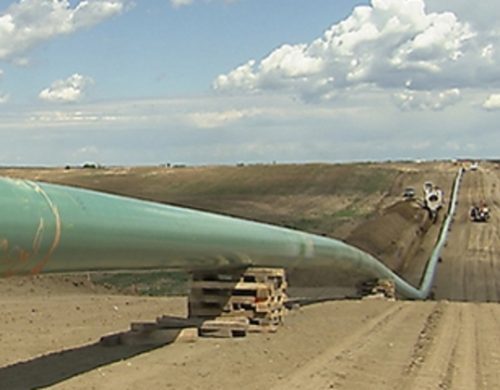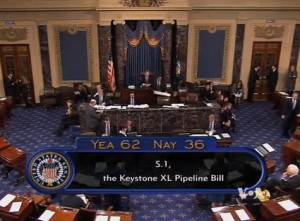
CAPITOL HILL—Despite a global oil glut, the U.S. Senate has voted 62-36 to approve construction of a controversial pipeline to transport Canadian crude to U.S. Gulf states.
President Barack Obama has threatened to veto the project, which pits powerful business interests against environmentalists at a time when American motorists are celebrating a steep drop in gasoline prices. Those costs have fallen by almost half over the last six months, making fill-ups less painful and leaving more cash in people’s wallets.
The Keystone XL pipeline project that the Senate approved would boost the flow of Canadian oil to U.S. refineries and is an economic and energy winner, according to Senate Majority Leader Mitch McConnell, a Kentucky Republican.
“Constructing this infrastructure project would pump literally billions of dollars into our economy,” he said.
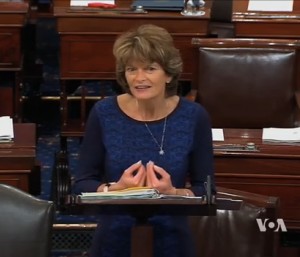
Fellow Republican Senator Lisa Murkowski of Alaska sees the issue in geopolitical terms.
“Is it not better to be receiving oil from our friend and ally, Canada, than it is from Venezuela?” she asked.
Opponents say Keystone will generate only a handful of permanent jobs and that the oil, once refined, would be exported, not kept in the United States. And Canadian tar sands crude is among the most pollutant-laden oil in the world, according to Senator Barbara Boxer, a California Democrat.
“So we know there are dangerous air pollutants and carcinogens that have been documented from tar sands refining, and all this to help a Canadian private company make a whole bunch of money, and we cannot even keep the oil in this country? Are you kidding?” she asked.
The Senate vote followed nearly three weeks of debate. The bill’s approval in the House of Representatives is all but assured, as is a presidential veto.
“Let’s set our sights higher than a single oil pipeline,” Obama has said. “If we do not act forcefully, we’ll continue to see rising oceans, longer, hotter heat waves, dangerous droughts and floods.”
Few U.S. motorists have even heard of Keystone. “I really do not know” what the project is, a Washington motorist said. “I just hope the prices stay low.”
Lower gas prices have not eroded the public’s majority backing for oil projects, according to opinion analyst Carroll Doherty.
“The public’s views on energy and environment are a little more kind of simplistic, in the sense that you ask people if they want alternative energy, [they say] yes,” Doherty said. “And when you ask about some traditional sources of energy, people want that, too. Many Americans don’t see it as a kind of choice that they have to make.” Instead, “they would want more energy from a variety of sources.”
For now, motorists are rejoicing at the gasoline pump — with or without Keystone.

